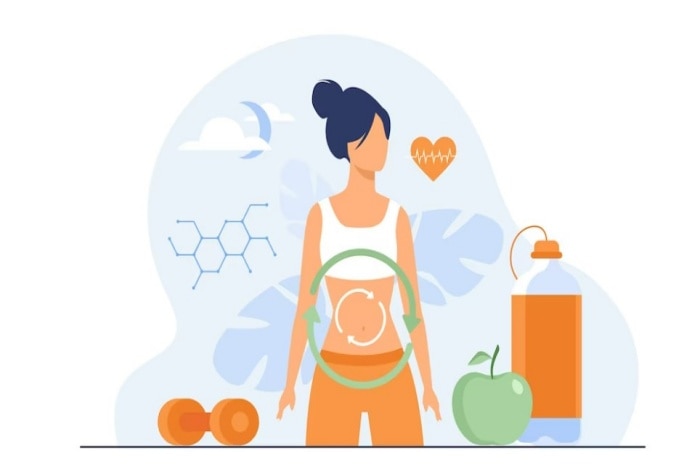At the time of seasonal changes, the responsibility of keeping our body healthy and protected from foreign bacteria falls on us.
The monsoon is the time when the mercury falls, the cool wind blows on our face and hair, there are many more food options to choose from and not to forget, some of which also involve allergies and waterborne diseases. Humid weather provides the ideal environment for the growth of bacteria and fungi. If you are a foodie and love street food, take a break, especially when it rains heavily. Street food is the most affected during the rains and tends to become contaminated. So it can lead to upset stomach, stomach infection, sluggishness, etc.
Maintaining our intestinal health is important for good digestion and also for a healthy body. Many bodily functions are affected by digestion. Here are some tips to follow to keep your gut healthy and working during the rainy season:
Gut Health During Monsoon: 7 Ways To Maintain Healthy Digestion
- Increase your stomach acid – Many people who have gas and bloating probably have too little stomach acid, not too much. Typical treatment is to take antacids, which reduce heartburn by exacerbating the problem. Proper levels of stomach acid are critical to the breakdown of protein in the stomach. Stomach acid also destroys pathogenic bacteria that can cause disease.
- Choose the right food combinationn – Food combining is the concept that certain foods go together well, while others don’t. Eating foods combined can do wonders to heal your digestive tract and balance your system.
- Opt for glutaminee – Glutamine is one of the most important nutrients you can give your body, as it supports the repair and regeneration of the intestinal lining in your body and also alleviates inflammation. Glutamine is found in meat, fish, eggs, dairy products, beets, beans, spinach, parsley, and fresh vegetable juices.
- Keep hydrated – Water is important for digestion. We need water to digest food and absorb nutrients properly. Without water, the performance of the entire body decreases, leading to dehydration and other problems.
- get probiotics – Probiotics are “good” bacteria found in the intestine. They are found in yogurts and fermented foods that can help with digestion.
- chew your food – Good digestion begins in the mouth. In order to properly digest our food, we need to do a lot of work in our mouths. When we eat on the run or swallow our food, digestion is compromised. Slow down, savor your food, and chew it well.
- Avoid highly digested foods: It is best to eat foods that are in season, foods rich in vitamin C, and avoid foods like shellfish, fatty foods, milk, or other items that take time to digest. It is better to go easier and healthier on the stomach,
Simple diet and lifestyle changes can help improve your digestion if you experience occasional, frequent, or chronic digestive symptoms.
Published Date: July 1, 2023 9:14 AM IST
–>
–>


